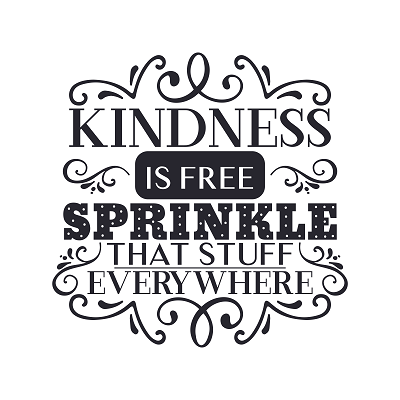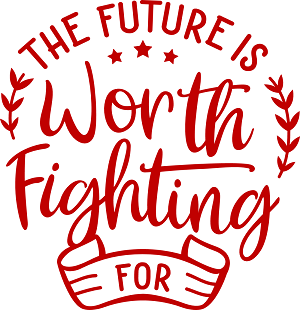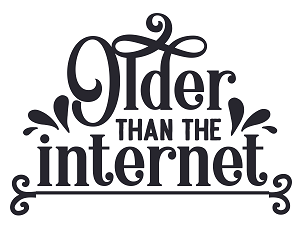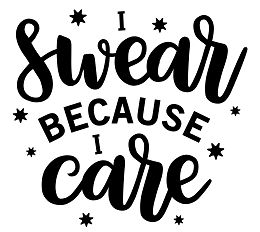 You can give your time, you can give your money, you can offer resources, and as you help others, you will also help yourself. It doesn’t take a medical professional to explain to you what feels good. If you have ever given anything, then you will know exactly how amazing it can feel.
You can give your time, you can give your money, you can offer resources, and as you help others, you will also help yourself. It doesn’t take a medical professional to explain to you what feels good. If you have ever given anything, then you will know exactly how amazing it can feel.
Just think about how you feel watching your loved ones opening presents that you carefully selected for their birthday or at Christmas.
Sometimes it’s more exciting to watch others open their presents to watch them react. You thought about it a lot and you’re sure they’ll love it, but you still have that tinge of doubt. You watch as their eyes widen as they tear the paper away and in that moment you know you got it right. That is one of the greatest feelings on earth.
You can capture that feeling all the time, not just on special occasions. Giving makes you feel good. It doesn’t matter how much you give. You might drop some change in a homeless person’s hat as you hop on the subway.
Perhaps you bring donuts in for the whole office. You sign up to give a monthly donation to a charity that means something to you.
All of those things impact the people around you. Just think about how excited people in the office get when someone arrives with communal food. That small act changes the entire tone of the day. Just like those few pennies can make a difference in that homeless person’s life, and that charitable donation fuels research.
You might not need a medical professional to explain it, but they do have plenty to say on the matter when it comes to the magic of giving.
Why Does Giving Feel Good?
The National Institutes of Health points to a study where researchers gave participants an MRI scan following charitable donations. The mesolimbic system became active after they donated. This region of the brain controls your feelings of pleasure and reward.
Link for more information – https://www.nih.gov/news-events/nih-research-matters/brain-imaging-reveals-joys-giving
Do you know what else activates this region of the brain? Drugs, food, and sex. That’s just the start of the health benefits of giving. Let’s take a look at the rest.
Satisfaction & Self-Esteem
Typically, research around the act of giving is focused on people who assist with loved ones who need it, as well as official volunteering. It’s known that these activities improve life satisfaction, provide us with a sense of purpose, and ultimately improve our self-esteem.
Young adults might not experience the same impact, though, as often they are obligated to volunteer, rather than doing so voluntarily. For example, they may help at the local school, but they only do so because it’s where their children attend.
Older adults tend to seek out volunteer roles more purposefully, and throughout the community. Despite that, volunteering can provide people of any age with a sense of purpose.
Protects Mental Health
As giving provides you with an overwhelming flood of positive feelings, you reduce your risk of depression. Giving, whether it’s time, money or resources provides you with a greater sense of control over your life.
Feeling as though you’re losing control is common in people with depression. So, gaining the feeling of control can make a difference to people trying to control their symptoms.
Improved Physical Health
It shouldn’t be surprising that giving improves your physical health. As you experience a boost in self-esteem, life satisfaction, and improved mental health, of course, your physical health will improve. It’s stress relieving and that has an impact on your cholesterol and blood pressure.
Also, an increase in mood can also explain some of the reasons why greater physical health occurs. When you volunteer, you are working toward a goal and you are contributing to society, that will influence both your physical and psychological health.
Longer Lifespan
Yes, volunteering can protect your health and extend your lifespan. Of course, it makes sense when you consider the previous benefits that we have pointed out. All those benefits influence your health.
Greater health means a reduced risk of stroke, heart disease, and other lifestyle diseases. A sense of purpose can do a lot for your lifespan, as well.
Quality of Life
Volunteering contributes to the community, which creates a greater sense of it. This leads to an improvement in your quality of life. It also provides a link between everyone in the community, with young people helping just as older people are.
This is a great boon for older adults who are looking to protect their cognitive health. Spending time with younger people offers a new perspective and helps protect against dementia.
Link for more information – https://www.verywellhealth.com/therapeutic-benefits-children-dementia-98690
Lower Blood Pressure
We’ve touched on this already, but it’s an important enough point to go into a bit more detail. The reason that giving reduces blood pressure is two-fold. First, the stress management aspect, second the physical activity. A lot of giving (that involves your time) increases your physical activity.
When you get your body moving, you get the exercise you wouldn’t normally get which is going to contribute to a healthy blood pressure level. When it comes to stress, it’s that sense of purpose that helps bust it. All of this provides your brain with a dopamine boost.
Weight Loss
According to a study from Northwestern University, high school students who gave their time regularly experienced weight loss, as well as an improvement in their cholesterol level. This is compared to their peers who did not volunteer. It literally is doing your body good.
Link for more information – https://jamanetwork.com/journals/jamapediatrics/fullarticle/1655500
Giving is Contagious
Giving doesn’t just help the recipient of your actions, and it doesn’t just impact you either. Giving is contagious and it can create a ripple effect throughout the community. A joint study from Harvard University and the University of California, San Diego found that when one person gives generously it can inspire others to do the same.
Link for more information – https://ucsdnews.ucsd.edu/archive/newsrel/soc/03-08ExperimentalFindings.asp
It’s a real-life pay it forward situation, whether people witness an act of generosity (or experience it for themselves) and go out and repeat that generosity with others. In fact, the researchers, Christakis and Fowler, found that it can spread three degrees.
One person influences another who influences another. So, one person has the power to influence dozens of people initially with their acts of kindness, and that can then continue to spread.
There have also been links between oxytocin release and giving. Your brain triggers the release of oxytocin during breastfeeding, compliments, exercise, meditation, physical touch, and sex. It brings about deep connections, warmth, and even euphoria.
Oxytocin can also encourage people to give more! When on that high, it can last two hours, people can create a cycle of paying it forward, starting with just one action. It doesn’t matter how you choose to give, it is going to help you build social connections, and ultimately, it’s going to spread through your community.
How Giving Impacts You
Think of a moment when you did something really nice for someone nice for someone. It doesn’t have to be a big thing – it could be as simple as reaching an item on the top shelf for someone who couldn’t reach, or it could be that you’re a doctor without borders.
No matter what it was, it probably made you feel good. You didn’t do it to feel good, you did it to help someone else. That feeling you get, though, it’s the one we all experience when we help, when you give, when we volunteer in a bid to help others. You don’t need to feel guilty about it.
In addition to the help benefits that we have already discussed, there is research that suggests that giving is a powerful force. It can boost your happiness and push you towards personal growth. There is pleasure in giving and while it’s beneficial to both parties, it might actually be more beneficial to the giver (depending on what exactly is being given, of course).
Perhaps one of the most interesting studies on the subject comes from the University of Zurich (). There were 50 participants, all of whom were told they would receive a sum of money over the course of a few weeks. Half of them were instructed to spend it on themselves, while the rest were told to spend the money on people they know.
Before any money was dispensed, researchers asked participants to think about a friend they would like to purchase a gift for, and how much they would hypothetically spend. They all underwent MRI scans so that researchers could measure the brain’s happiness, generosity, social behavior, and decision-making regions.
Predictably, the group that spent the money on themselves did increase an increase in satisfaction and happiness. The biggest takeaway, though, was that just thinking about how they would give away the money made them every happier, no matter how much it was. So, just by turning up with coffee for your friend, you are making a difference.
Link for more information – https://www.media.uzh.ch/en/Press-Releases/2017/Generosity.html
How Giving Influences Your Mental Wellbeing
It’s fair to say that the majority of people can agree on this fact – giving is good. It shows compassion, support, empathy, and kindness. That it also has a direct effect on your own well-being is a bonus. Even small acts of kindness can provide you with a sense of purpose, increase your happiness, and leave you feeling satisfied with your life.
When we talk about well-being, we often think about our careers, our homes, the money we earn, our comfort levels, and even our vehicle. There is a lot more to well-being than this, though, and what we do and how we think is going to have to biggest impact on your well-being (and your mental health).
What does positive well-being really mean? It’s all about feeling good – mentally, physically, emotionally, and spiritually – and not just about yourself, but also the other people in your life and the world.
Offering others support, working with other people with a shared goal – it’s all good for your mental health and well-being. Giving can improve your mental well-being and we think that’s worth exploring more.
57 Ways to Give
As we said earlier, it doesn’t matter how great or small your giving is, there are plenty of ways that you can help others in your daily life.
- Thank someone who has helped you
- Call someone who is in need of company or support
- Ask someone how they are and actively listen to their response
- Offer a stranger help, by holding the door open, assist someone struggling with shopping bags, etc.
- Arrange to spend the day with a relative or friend who needs help
- Assist someone close to you with a project
- Join a mentoring program
- Find a formal volunteer project to join in your local community – check with nursing homes, local schools, hospitals, homeless shelters, etc.
- Donate a gift to a children’s charity
- Donate canned goods to a food drive or your local food bank
- Volunteer at an animal rescue organization or the humane society
- Volunteer at an assisted living facility
- Volunteer at a homeless shelter to serve meals
- Donate supplies to charities that support unprivileged children and families
- Make casseroles for people going through a difficult time
- Create a plan with your neighbors to support each other during times of difficulty – this could be a plan to make meals, carpool or babysitting
- Know a single parent? Offer to help out so they can practice a bit of self-care
- Unemployed friend? Do something to boost their confidence
- Pay for the person behind you in line – whether it’s for public transport, at the drive-thru, gas station or, elsewhere
- Know people who would hit it off? Introduce them! (it doesn’t have to be a romantic thing)
- Donate warm clothing to a shelter
- Have a clear out and donate items to a local charity
- Offer to go shopping for someone who has reduced mobility or is ill
- Do the chores around the house that someone else generally tackles
- Compliment a parent having a difficult time
- Let someone’s manager know when they give you great service
- Send a thank you note
- Consider donating sick days to someone in your office who is going through an illness
- Be patient with others
- Compliment someone on a great job and do it in front of others
- Be willing to help others patiently when they ask
- Get to know your neighbors
- When you pack your lunch, take extra just in case others are short
- Offer your partner a compliment
- Do you have a special skill? Think about how you can donate that to the benefit of others, whether it’s cooking, photography or athletics.
- Stand up for people who don’t have a voice
- When you feel like complaining, put your energy into something useful instead
- Bake a treat for someone on their birthday
- Be open to trading shifts with a colleague in need
- Help someone going through an illness, someone who just had a baby or has experience loss – you can babysit, cook for them or even offer to clean
- Offer someone your seat on public transportation
- Donate to a charity that puts care packages together for refugees, deployed soldiers or those affected by a natural disaster
- Stop to provide someone with directions or snap that photo of a happy couple
- Offer your handyman a sandwich
- Put some change in a parking meter that’s running out
- Give someone a ride home
- Donate blood
- Offer your skills as a tutor, whether it’s for children who are struggling at school or adults who are looking to continue their education
- If you can’t afford to donate to a charity, why not raise money on behalf of one? You can run a marathon, hold a bake sale, shake your head, etc.
- Why not start a non-profit?
- Pay a bill for someone else
- Write an uplifting note to someone
- Treat a friend to breakfast and let them talk about their problems
- Buy a small gift for a someone who is going through a difficult time
- Send a friend a book you know they have been dying to read
- Invite an elderly person (from church, the neighborhood, a relative) to a special event
- Become a mentor
As you can see, there are meaningful ways that you can make a difference in the lives of others with your giving. It really doesn’t matter how much spare time do you have or how little money you have – there are several ways you can make a difference with what you have.
We can all make a difference in our own way, in our own time, and within our own budgets. It’s up to you to determine exactly how you will do that.
So, what are you going to do each day to give to others? Why not take some of the ideas listed above and create a plan to enjoy the magic of giving?
Final Thoughts
There are numerous studies about how giving improves mental well-being. In 2004, the University of Wisconsin carried out a study with 373 participants, aged 64-74. They found that the adults who gave their time to formal volunteer projects experienced a much greater sense of mental well-being.
Link for more information –https://www.ncbi.nlm.nih.gov/pubmed/15358800
What we’ve learned from research is that giving stimulates your brain’s reward area and it helps increase your positive feelings. Giving often sees us working with others as well, which in addition to a sense of purpose, helps us build self-worth and cooperation skills.
A study from Tennessee’s University of the South found that random acts of kindness can improve your mood. In fact, it boosts your mood even more than doing something for yourself.
It’s important to understand that your reason for volunteering does matter. As we noted, adults who feel an obligation to do so will experience much less benefit than someone who is genuinely volunteering. So, don’t do it just because you have to. Don’t do it just because you want a boost in your mood.
If you are already volunteering, but it feels like a chore because it’s something you have to do, consider what type of volunteering you would enjoy.
Perhaps you are passionate about helping homeless people and you can offer them interview clothing, a haircut or food. There are a lot of different ways you can put your passion to good use and help others.
Likewise, you can use your wealth to do so. If you are choosing to volunteer because it’s the right thing to do, then you are more likely to experience these benefits.
Some people have no choice in the matter – particularly when it comes to providing care for elderly loved ones. In this case, it’s easy to reach a point where it’s too much. It’s common for caregivers to experience stress.
So, if you are in this type of position, where volunteering isn’t your choice, you should try and make time to do the things you enjoy doing. Perhaps someone in your life can volunteer to tackle your duties to allow you time away, that way everyone wins.
When it comes to the magic of giving, people confuse the idea with grand gestures. You don’t need to make grand gestures. Not everyone has the bank account to do that, not everyone has the time to give. You can make a difference in small ways that can have a big impact.
If you sit down with a group of friends to come up with a way you can all give in fruitful ways, you can maximize your impact. Your giving group can start by making a different in your neighborhood, that will ripple throughout your community. It’s certainly a start.


